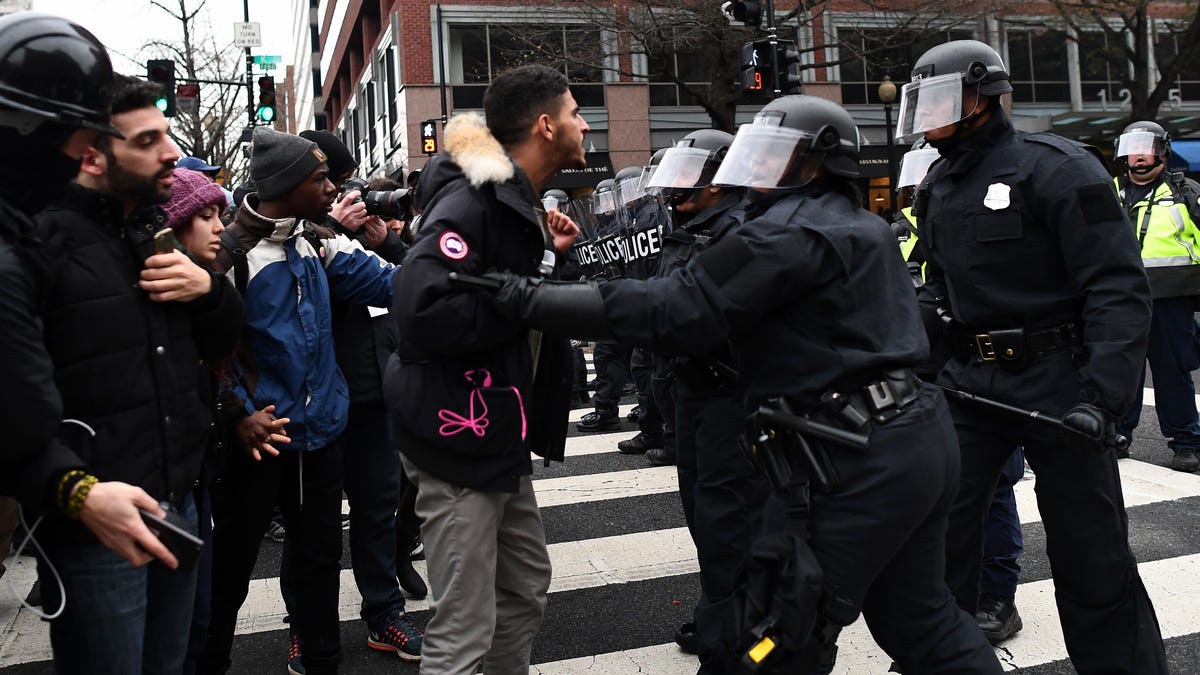Prosecutors hack phones seized in inauguration protests
Court papers say data is being extracted from 100 locked phones confiscated during arrests at anti-Trump protests.

Police officers push back demonstrators as they protest against US President Donald Trump in Washington on Jan. 20, 2017.
Prosecutors are trying to pull data from 100 locked phones seized during arrests made in Washington on Inauguration Day, according to court papers filed Wednesday.
The officials said they have search warrants to extract data from the phones, which were taken by law enforcement officers on Jan. 20 from 214 individuals arrested on felony rioting charges related to demonstrations protesting the inauguration of Donald Trump, according to a BuzzFeed report.
The filing suggests that even though the phones are locked, prosecutors have copied data from them, although it doesn't describe their methods. Prosecutors said in the filing they expect to "produce all of the data from the searched [phones] in the next several weeks."
Wednesday's filing comes amid a mounting war of words between tech companies and policy makers, who contend that terrorist groups are benefiting from encryption , the technology that jumbles communications and files so that only the intended recipient can read them. Tech companies have become increasingly diligent about including encryption in products and services in the wake of revelations about US government surveillance programs from documents leaked by former NSA contractor Edward Snowden .
Apple's iPhone was at the center of a legal back-and-forth between the government and Apple last year after the December 2015 attack in San Bernardino, California, that left 14 people dead. The government wanted Apple to write new software that would unlock the phone and make its data readable, but Apple refused, saying that weakening the encryption would potentially leave other iPhone users at risk.
In a surprise revelation in March 2016, the Department of Justice said an unnamed outside party helped agents break into an iPhone 5C that was used by shooter Syed Farook. However, the agency wouldn't disclose exactly how the hacker got into the phone.
The data extracted from protesters' phones includes personal information irrelevant to the charges, so prosecutors are seeking a court order that would prohibit defense lawyers from copying or reproducing information unless it's relevant to the defense of their client.
Representatives for the US Attorney's Office for the District of Columbia, which filed the papers Wednesday in the DC Superior Court, did not immediately respond to a request for comment.
Does the Mac still matter? Apple execs tell why the MacBook Pro was over four years in the making, and why we should care.
Tech Enabled: CNET chronicles tech's role in providing new kinds of accessibility.

